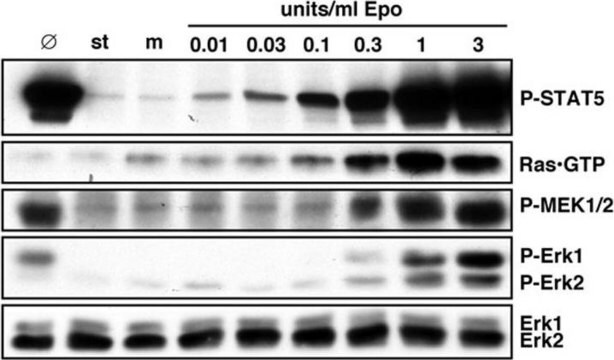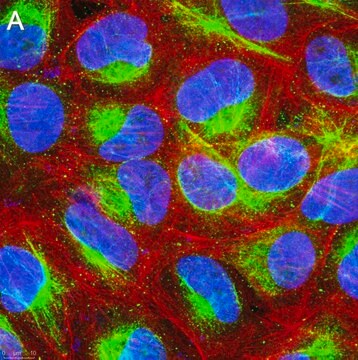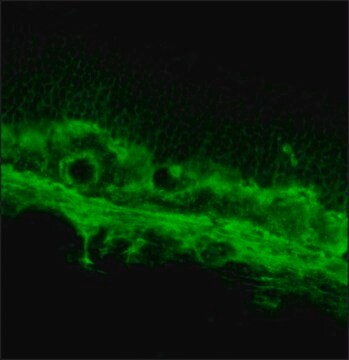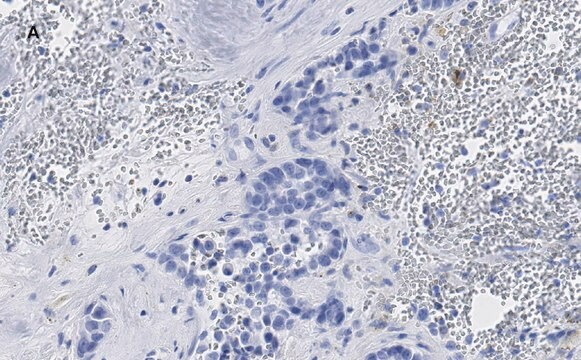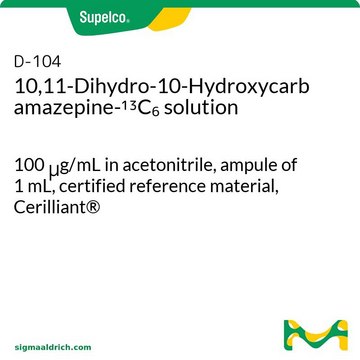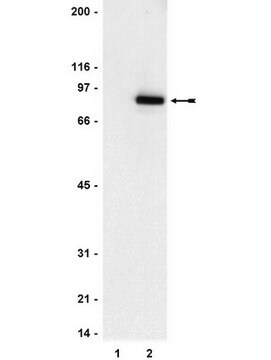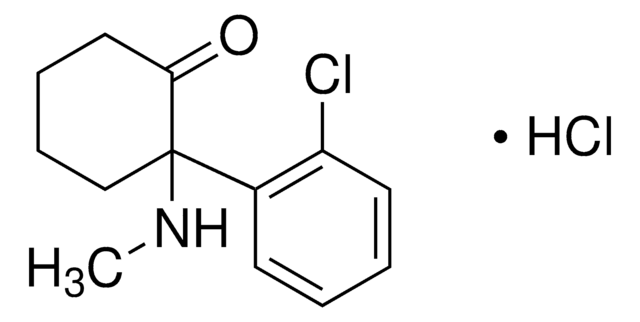04-886
Anti-phospho-STAT5A/B (Tyr694/699) Antibody, clone A11W, rabbit monoclonal
culture supernatant, clone A11W, from rabbit
Synonym(s):
signal transducer and activator of transcription 5A, signal transducer and activator of transcription 5B, transcription factor STAT5B
About This Item
Recommended Products
biological source
rabbit
Quality Level
antibody form
culture supernatant
antibody product type
primary antibodies
clone
A11W, monoclonal
species reactivity
rat, chimpanzee, human, mouse, bovine
technique(s)
western blot: suitable
isotype
IgG
suitability
not suitable for immunoprecipitation
UniProt accession no.
shipped in
dry ice
target post-translational modification
phosphorylation (pTyr694/pTyr699)
Gene Information
bovine ... Stat5A(282375)
General description
Specificity
Immunogen
Application
Signaling
Apoptosis & Cancer
Transcription Factors
Quality
Western Blot Analysis:
A 1:1,000-1:2,000 dilution of this antibody detected phospho-STAT5A/B (Tyr694/699) in lysates from 3T3/NIH cells treated with PDGF.
Target description
Linkage
Physical form
Storage and Stability
Handling Recommendations: Upon receipt, and prior to removing the cap, centrifuge the vial and gently mix the solution. Aliquot into microcentrifuge tubes and store at -20°C. Avoid repeated freeze/thaw cycles, which may damage IgG and affect product performance.
Analysis Note
PDGF treated 3T3/NIH cells
Disclaimer
Not finding the right product?
Try our Product Selector Tool.
Storage Class Code
12 - Non Combustible Liquids
WGK
WGK 1
Flash Point(F)
Not applicable
Flash Point(C)
Not applicable
Certificates of Analysis (COA)
Search for Certificates of Analysis (COA) by entering the products Lot/Batch Number. Lot and Batch Numbers can be found on a product’s label following the words ‘Lot’ or ‘Batch’.
Already Own This Product?
Find documentation for the products that you have recently purchased in the Document Library.
Our team of scientists has experience in all areas of research including Life Science, Material Science, Chemical Synthesis, Chromatography, Analytical and many others.
Contact Technical Service
